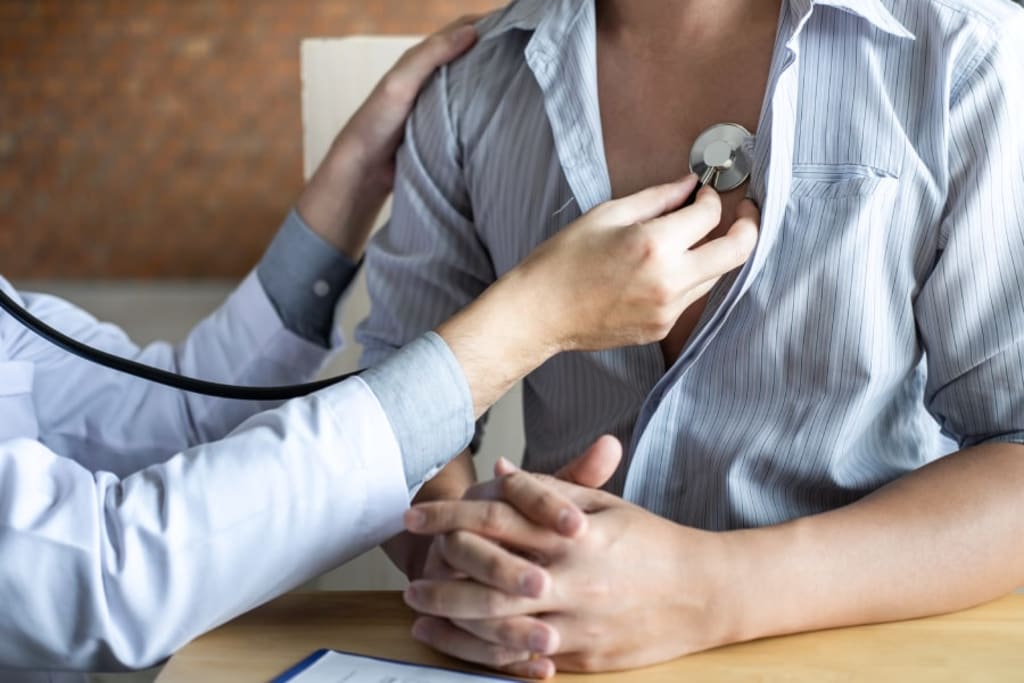Top 10 Signs You May Need to Consult a Heart Doctor
Do not disregard any of the symptoms of heart problems if they are constantly bothering you. It will never hurt to choose to visit a cardiologist. When experiencing cardiac issues, many people put off seeing a doctor for far too long, which can have dangerous health consequences. Stop allowing it to happen to you. Continue reading for ten indicators that you need to visit a heart doctor right away.

1. Chest pain
Are you dealing with any discomfort or pain in your chest? These symptoms are among the most typical indications that something is not right with your heart. Consult a cardiologist right away. They'll be able to detect what's the culprit behind your symptoms and provide you with the care you require.
2. Hypertension
A condition known as hypertension occurs when the force of your blood against the walls of your arteries is so great that it may potentially result in health issues, including cardiovascular disease. Blood pressure is influenced by how much blood your heart pumps as well as how much resistance your arteries provide to blood flow. Your blood pressure will increase as your arteries get more constricted and your heart pumps more blood. High blood pressure might be present without any symptoms for many years. It's crucial to have your blood pressure frequently tested because of this. High blood pressure can cause major health issues, including heart attack, stroke, and renal damage if it is not treated.
3. Difficulty breathing
Do you experience difficulty breathing? This is another typical sign of cardiac issues. Consider consulting a doctor if you start to feel short of breath after doing very little exercise or performing basic movements. There are many different causes that can cause trouble with breathing. Hence, it's important to always get examined by a specialist just to be cautious.
4. Swelling
Is there any swelling in your feet or ankles? This frequently indicates cardiac failure. See a doctor as soon as possible if your ankles or feet are swollen. Even if there are other potential causes of swelling, it's advisable to be seen by a cardiologist just in case.
5. Diabetes
There is undoubtedly a linkage between diabetes and heart disease, even though the exact mechanism they affect each other is not yet recognized. Heart problems is far more likely to occur in diabetics than in non-diabetics. Having diabetes increases your risk of heart disease and stroke by two to four times.
Although the cause of this elevated risk is unclear, it is believed that high blood sugar levels may harm your arteries, leaving them more prone to get obstructed. Diabetes can also harm blood arteries and nerves, making it more difficult for your heart to pump blood efficiently. Whatever the reason, diabetes and heart problems clearly have a connection. If you have diabetes, it's crucial to visit a cardiologist frequently and take precautions to lower your risk of heart disease.
6. Irregular heart rhythm
Do you experience an erratic heart rhythm? A dangerous cardiac problem called arrhythmia can be detected by this issue. Avoid postponing having a consultation with a cardiologist if you find that your heartbeat is erratic. They'll be able to detect the precise cause and provide an effective treatment.
7. Smoking
Cigarette smoking is a significant risk factor for cardiovascular disease. Actually, smokers have a two to four times higher risk of developing heart problems compared to nonsmokers. You should visit a cardiologist for routine exams if you smoke or even if you've ever smoked. A cardiologist can assist you in keeping a close eye on your cardiovascular health and spotting any potential heart problems early on. Additionally, they may offer advice on how to stop smoking, which is the greatest method to lower your risk of cardiovascular disease.
8. High cholesterol
High cholesterol can cause cardiovascular disease, stroke, and other serious health problems. If you have high cholesterol, you should consult a cardiologist. A cardiologist is a doctor who specializes in the diagnosis and treatment of heart disorders. With their help, you can reduce your risk of cardiovascular disease and control your high cholesterol. High cholesterol can be addressed with a number of methods, including dietary changes, medicines, and surgery. You and your cardiologist will work together to create the best treatment plan for you. If you have high cholesterol, do not put off getting treatment. Consult a cardiologist as soon as possible for the best chance of preserving your heart health.
9. Family history of heart problems
The top cause of mortality in the US is cardiovascular disease, and individuals who have a family history of the condition are more at risk. Family history is among the most significant of the numerous variables that might lead to the development of heart disease. It's critical to understand your risk of having heart disease if one or more close family members have received a diagnosis. The risk can be decreased by living a healthy lifestyle and scheduling routine visits with the doctor.
Additionally, being aware of your family's medical history can help you and your doctor spot cardiac problems early on and take preventative measures before it worsens.
10. Considering starting a new workout program
It's wise to see your doctor before beginning any new workout program. This is particularly true if you have any underlying medical issues or if you don't routinely exercise. A cardiologist can assist you in creating a strategy that is specific to your circumstances and in determining whether there are any risks involved with beginning a workout regimen. Even if you are healthy and energetic, you should start out carefully and increase your activity level over time. Naturally, you should also pay attention to your body's signals and quit if you feel any discomfort or aches.
The bottom line
If you show any of the aforementioned signs or symptoms, you should contact a heart doctor right away. Timely diagnosis and appropriate treatment mean greater chances of avoiding major cardiac complications in the future.
If you're trying to find the best heart doctor in your area, ask your friends and family for recommendations, look up internet reviews, consider the doctor's credentials, and learn about their experience in cardiology. Also, think about picking a cardiac doctor that has gotten good reviews from patients and is preferably well-known nationwide. Next, seek academic positions or fellowships in medicine and research. It will show how committed they are to their line of work.
To determine the cause of your symptoms, your chest pain expert may subject you to several tests. These will consist of an electrocardiogram, an echocardiogram, a stress test, and a CT scan of the coronary arteries. These examinations are non-invasive and will not result in any discomfort. Your cardiologist may decide to stop after identifying the cause of your pain, so all four may not be required. Learn how to treat your chest pain and return to your regular activities by paying close attention to your doctor's advice.
About the Creator
Amelia Grant
I am journalist, and blogger.






Comments
There are no comments for this story
Be the first to respond and start the conversation.